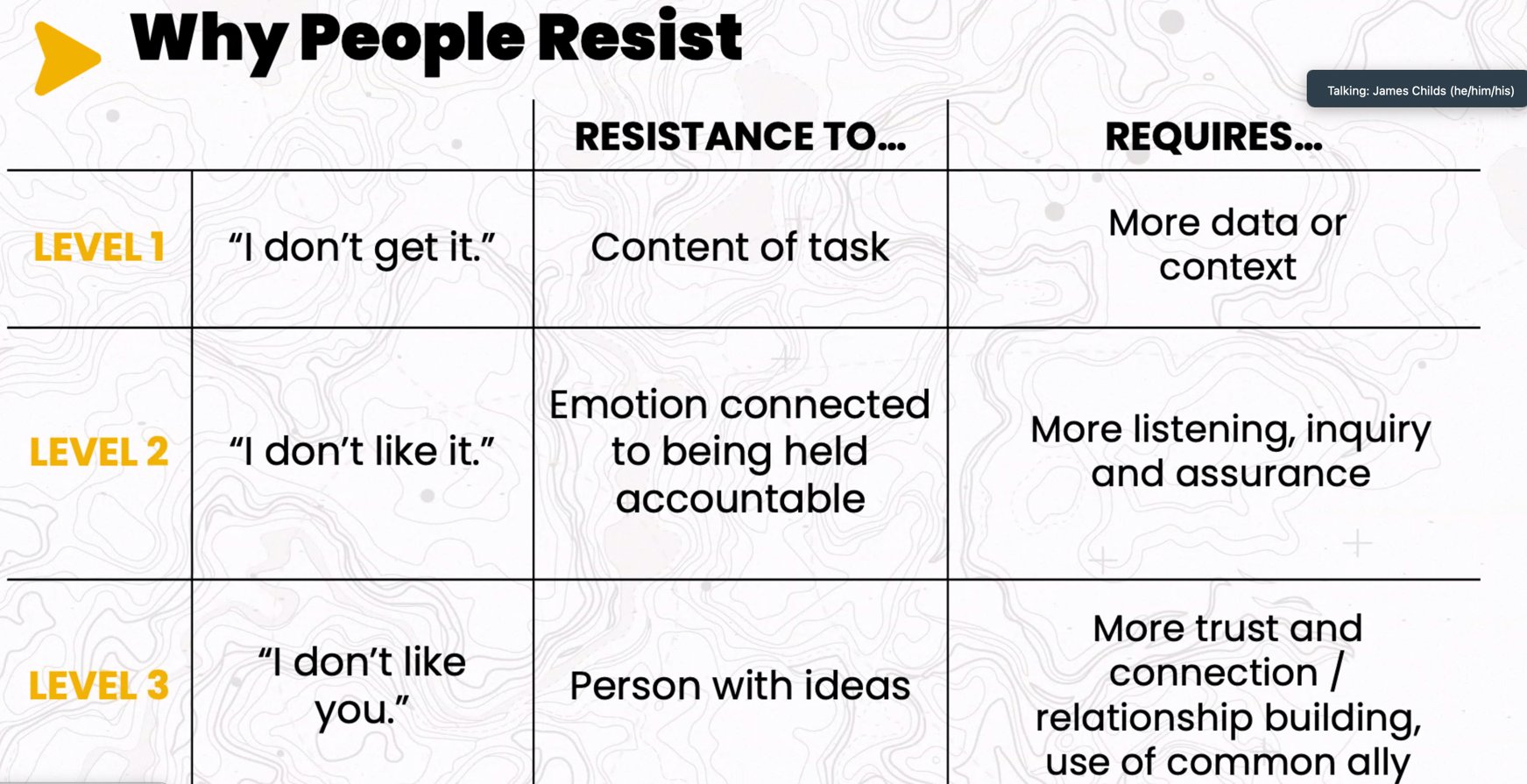Thinking Slow — Time Helps
We slow thinkers don’t often get much space in a world that rewards speed.

Why do people resist? It’s a question that comes up over and over again—at work, in relationships, in life. We see it in meetings when ideas are shut down, in teams where collaboration feels like a constant battle, and in situations where progress stalls because someone just doesn’t seem on board.
But here’s the thing: resistance rarely shows up in one form. It comes in layers.
The first layer is “I don’t get it.” Maybe the person doesn’t fully understand the changes you’re suggesting, or perhaps you haven’t clearly communicated your vision. It’s frustrating, but manageable.
Then there’s the second layer, “I don’t like it.” Now things get more personal. The resistance is no longer just about the idea, but about the discomfort it brings. Change can be unsettling, and this often brings fear or skepticism to the surface.
The deepest layer, though, is the hardest to navigate: “I don’t like you.” This is where resistance becomes emotional. Trust is missing, and there’s something about your approach, your leadership, or your personality that doesn’t sit well with the other person.

But what if we could break through those layers? What if, instead of feeling frustrated or defensive, we approached resistance with curiosity and empathy?
I remember a time when I felt resistance from a colleague. It wasn’t overt, but I could sense the tension. One day, I decided to be vulnerable. I told them I felt a bit intimidated by their presence, and asked if we could talk about it. It wasn’t an easy conversation to start, but I approached it with a genuine desire to understand, not accuse.
What happened next surprised me. Instead of becoming defensive, they opened up. They acknowledged they hadn’t meant to come across that way, and from that point on, we grew closer. We collaborated better, learned from each other, and the tension dissolved.
Not every situation will resolve itself so smoothly, but when you bring empathy and openness into the conversation, people respond differently. They feel heard, valued, and respected.
Sometimes, even after trying to bridge the gap, things might not improve. Not everyone will respond the way you hope, and that’s okay. But by seeking to understand rather than dismiss, you create an opportunity for growth—both for yourself and for the other person. And when that doesn’t work, reaching out to someone with more experience can be incredibly valuable. A mentor, a trusted friend, or even another colleague may help you see things from a different perspective.
The truth is, resistance will always be part of the human experience. It’s natural, but that doesn’t mean it’s insurmountable. In fact, some of the most profound connections and breakthroughs can happen when we stop seeing resistance as a roadblock and start seeing it as an opportunity to learn.
So ask yourself: what’s the resistance really about? Is it about misunderstanding, discomfort, or something deeper? How can you approach it differently? Can you find common ground, even if it takes time and effort?
In the end, overcoming resistance isn’t about winning someone over to your side. It’s about building trust, understanding, and a shared path forward. And sometimes, as in my case, it could lead to stronger, more meaningful relationships than you ever imagined.